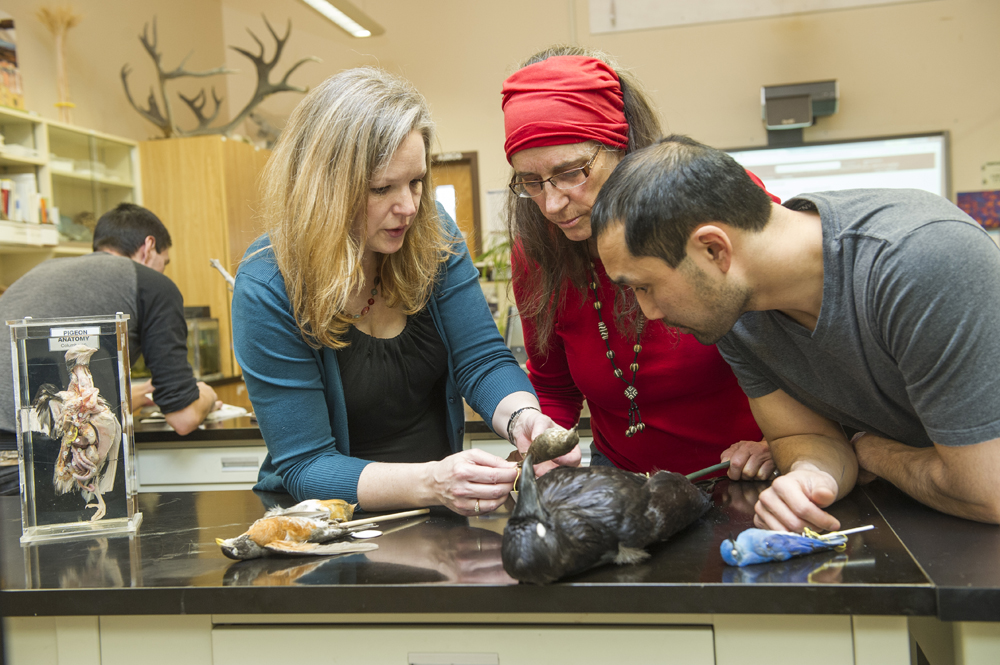Science courses will be delivered this fall through a mix of methods. Most lab courses will have in-person lab sessions with lectures being delivered online with some mix of scheduled Zoom sessions and other online activities in Moodle, YukonU’s online learning platform. Courses without labs will be taught entirely online.
Online courses will require that you have access to your own computer and Internet connection.
More information about the online platforms that will be used for fall instruction can be found at www.yukonu.ca/student-life/technical-resources
Students new to online learning are encouraged to take the brief online introductory workshop Distance Learning Success. Contact the Academic Support Centre for more information:
www.yukonu.ca/student-life/learning-matters/academic-support-centre
The School of Science offers university-transfer courses in mathematics and in the earth, life and physical sciences. Students can complete a one-year Certificate of Science, a two-year Diploma of Northern Science or a four-year Bachelor of Science degree.
The Diploma of Northern Science is designed for those who wish either to enter a scientific profession or to work in the North at the technical level.
A wide choice of electives enables students to concentrate on a particular field of study or to construct a general science program with a strong northern focus.
In the first year, students have two options:
- Complete the Yukon University Certificate of Science (or equivalent) OR
- Complete a first-year program comprised of Chemistry, English and selected electives.
Building on this base, in their second year, students take the Northern Studies Core as well as northern-oriented science electives and develop practical expertise by attending the Northern Studies Field Camp.
Suggested course schedule
Year one - Fall
CHEM 110, ENGL 100, Science elective, Science elective, Elective
Year one - Winter
CHEM 111, ENGL 101, MATH 105, Science elective, Science elective
Year two - Fall
NOST 215, NOST Core Course, Science Elective (200-level), Science Elective (200-level), Elective
Year two - Winter
NOST Core Course, Science Elective (200-level), Science Elective (200-level), Science Elective, Elective
The Diploma of Northern Science is awarded for the completion of the equivalent of two years of full-time university-level study (60 credits) in the sciences.
To graduate, students must pass all the required courses, and:
- complete 50% of the course work at Yukon University
- maintain a 2.00 cumulative GPA (C average) across all courses
Yukon University recognizes that a greater understanding and awareness of Yukon First Nations history, culture and journey towards self-determination will help to build positive relationships among all Yukon citizens. As a result, you will be required to achieve core competency in knowledge of Yukon First Nations.
For details, visit Yukon First Nations Core Competency
Fees
Tuition for credit programs is calculated per course credit. See money matters for more information.
Some programs and courses have additional fees - see Ancillary Fees.
Student financial awards
Education is an investment in your future, your family and your community. Yukon University is pleased to support that investment by offering some of the most competitive tuition rates in the country, as well as several student financial awards to help offset your educational and living costs.
Financial assistance
There are government programs, scholarships, bursaries, awards and First Nation funding available to financially support you throughout your academic career.
See money matters for more information, or talk to our financial advising staff in the Student Services Centre. Email or call 867 668 5209 to make an appointment.
